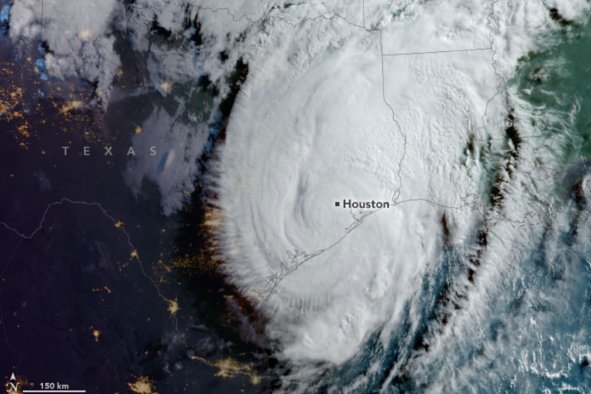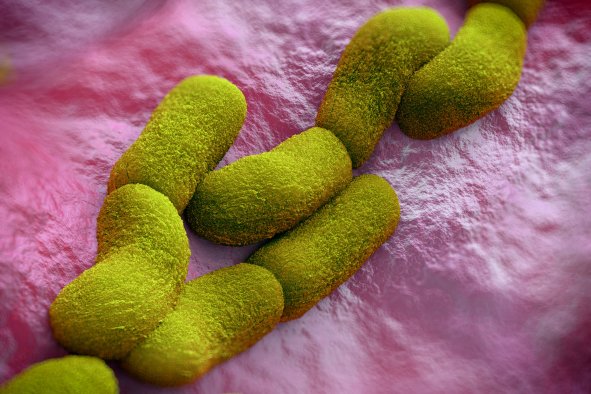An exoplanet in the habitable Goldilocks Zone of its star is now suspected to have a liquid water ocean and an atmosphere.
The planet, named LHS 1140 b, is about 1.7 times the size of Earth, and is situated around 48 light-years away.
This distant world, first discovered in 2017, has now been found to be a rocky world like ours, but with 10 to 20 percent of its mass being made up by water, according to a new paper due to be published in the The Astrophysical Journal Letters this week (currently available on the arXiv preprint server).
"Of all currently known temperate exoplanets, LHS 1140 b could well be our best bet to one day indirectly confirm liquid water on the surface of an alien world beyond our solar system," paper co-author Charles Cadieux, a doctoral student at Université de Montréal, said in a statement. "This would be a major milestone in the search for potentially habitable exoplanets."
LHS 1140 b orbits a red dwarf about 20 percent the size of our own sun, and is situated at a specific distance from its sun that puts it in the "Goldilocks" or habitable zone. This refers to the range of distances from a star where conditions are just right for liquid water to exist on a planet's surface. If a planet is too close to its star, it will be too hot, causing water to evaporate, while if it is too far from its star, it will be too cold, causing water to freeze.
The size and type of the star significantly affect the location of the habitable zone. For example, the habitable zone is closer to a smaller, cooler star (like a red dwarf) and farther from a larger, hotter star.
Before now, astronomers weren't sure if LHS 1140 b was a rocky planet like Earth or a gas giant more like Neptune, but eventually, they determined that the exoplanet was something called a super-Earth.
Using data collected by the James Webb Space Telescope (JWST), they discovered that LHS 1140 b was less dense than expected for a completely rocky world, and that between 10 and 20 percent of its mass may be made up of water, meaning that the planet could be an ice world with a liquid ocean beneath the ice, like Jupiter's moon Europa.
They also found that the planet has an atmosphere, possibly containing a similar amount of nitrogen to our own planet. The presence of this atmosphere would enable the planet to sustain liquid water at the surface.
"This is the first time we have ever seen a hint of an atmosphere on a habitable zone rocky or ice-rich exoplanet. Detecting atmospheres on small, rocky worlds is a major goal for JWST, but these signals are much harder to see than for giant planet atmospheres," co-author Ryan MacDonald, also a Université de Montréal researcher, said in the statement.
"LHS 1140 b is one of the best small exoplanets in the habitable zone capable of supporting a thick atmosphere, and we might just have found evidence of air on this world."
Using models, the astronomers predicted that if LHS 1140 b has an atmosphere like that of Earth, it could be composed of a layer of ice all around the planet, with a single circle of surface ocean about 2,500 miles across, roughly half the size of the Atlantic Ocean. According to the paper, this ocean could have a surface temperature as warm as 68 degrees F.
This discovery therefore makes LHS 1140 b a prime candidate for life beyond our world, as its potential atmosphere and liquid water could host life similar to that on Earth.
"This is our first tantalizing glimpse of an atmosphere on a super-Earth in the habitable zone. Compared to other known habitable zone exoplanets, such as those in the TRAPPIST-1 system, the star LHS 1140 appears to be calmer and less active, making it significantly less challenging to disentangle LHS 1140 b's atmosphere from stellar signals caused by starspots," MacDonald said.
"Our initial reconnaissance of LHS 1140 b with JWST has revealed this to be perhaps the best habitable zone exoplanet currently known for atmospheric characterization. While we need more JWST observations to confirm the nitrogen-rich atmosphere, and to search for other gases, this is a very promising start."
Do you have a tip on a science story that Newsweek should be covering? Do you have a question about exoplanets? Let us know via science@newsweek.com.
Disclaimer: The copyright of this article belongs to the original author. Reposting this article is solely for the purpose of information dissemination and does not constitute any investment advice. If there is any infringement, please contact us immediately. We will make corrections or deletions as necessary. Thank you.



